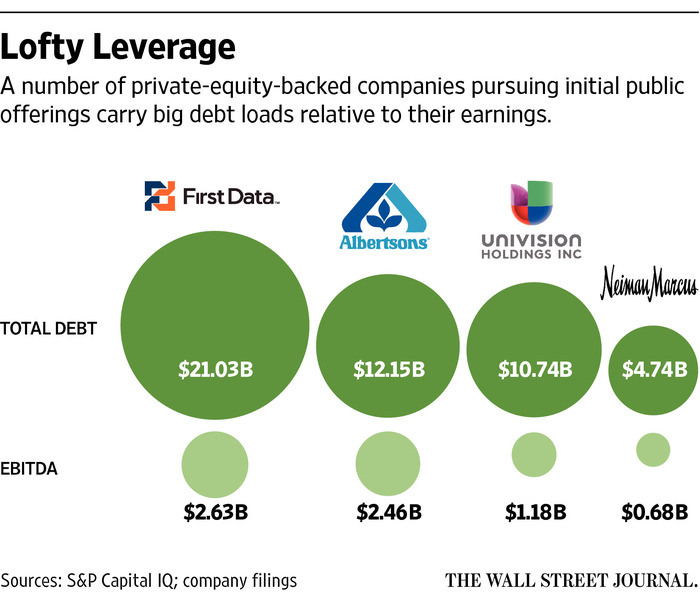Indigenous Scientists: Protecting Data And Cultural Heritage

Table of Contents
Understanding Data Sovereignty in Indigenous Contexts
Data sovereignty, in the context of Indigenous communities, represents the right of Indigenous peoples to govern the collection, storage, use, and sharing of their data. It's a fundamental aspect of self-determination, acknowledging the inherent right of Indigenous nations to control information vital to their cultural survival and well-being. This control extends beyond simple access; it encompasses decision-making authority over all stages of the data lifecycle.
- Defining Data Sovereignty: Data sovereignty is not merely about access to data; it's about control over its entire lifecycle, from collection and storage to analysis and dissemination. It acknowledges Indigenous communities as the rightful custodians of their own information.
- Empowerment through Control: Data sovereignty empowers Indigenous peoples by allowing them to determine how their data is used, ensuring it aligns with their cultural values and priorities. This empowers them to tell their own stories and shape narratives about their histories and futures.
- Free, Prior, and Informed Consent (FPIC): FPIC is paramount. It necessitates that Indigenous communities provide freely given, informed, and culturally appropriate consent before any data collection or research involving them commences. This is not a simple signature; it demands genuine understanding and participation.
- Successful Indigenous-Led Initiatives: Numerous Indigenous communities are successfully implementing data governance frameworks, creating their own databases, and establishing protocols for data sharing, demonstrating the power and practicality of data sovereignty. These initiatives often involve community-based participatory research (CBPR) methodologies.
Protecting Traditional Ecological Knowledge (TEK) and Intellectual Property
Traditional Ecological Knowledge (TEK) represents the accumulated knowledge, practices, and beliefs of Indigenous peoples regarding the natural world. It's deeply intertwined with their cultural identity and essential for their livelihoods. However, TEK is vulnerable to biopiracy—the unauthorized appropriation of genetic resources and associated knowledge—and cultural appropriation.
- The Importance of TEK: TEK encompasses centuries of observation, experimentation, and adaptation to local ecosystems. It provides invaluable insights for sustainable resource management, conservation efforts, and climate change adaptation.
- Vulnerability to Exploitation: The unique value of TEK makes it a target for exploitation. Bioprospecting, without proper consent or benefit-sharing, constitutes biopiracy, denying Indigenous communities the rightful rewards of their knowledge.
- Intellectual Property Rights (IPR) and TEK: While traditional IPR systems don't always neatly align with TEK, exploring legal mechanisms to protect this knowledge is crucial. This might involve developing community-specific intellectual property rights frameworks or using existing legal avenues to prevent biopiracy and cultural appropriation.
- Benefit-Sharing Mechanisms: Ethical research necessitates equitable benefit-sharing. This means that Indigenous communities receive fair compensation and recognition for their contributions to research projects utilizing their TEK.
- Successful Protection Strategies: Indigenous communities are increasingly employing strategies like community-based conservation initiatives, the establishment of seed banks, and the development of community-owned enterprises based on their traditional knowledge to protect their TEK and ensure its sustainable use.
Ethical Research Practices with Indigenous Communities
Ethical research involving Indigenous communities demands a paradigm shift from extractive to collaborative approaches. This necessitates adopting community-based participatory research (CBPR) methodologies.
- Ethical Research Principles: Ethical research prioritizes respect for Indigenous cultures, values, and self-determination. It emphasizes transparency, reciprocity, and building trust.
- Community-Based Participatory Research (CBPR): CBPR puts Indigenous communities at the center of the research process. It ensures that research questions, methods, and outcomes are relevant to their needs and priorities. This promotes genuine partnership rather than a researcher-driven approach.
- Capacity Building: Empowering Indigenous communities by building their research capacity is crucial. This includes providing training, resources, and support to ensure their meaningful participation in all aspects of research.
- Indigenous Research Methodologies: Incorporating Indigenous research methodologies, which often prioritize oral histories, storytelling, and community-based knowledge systems, is critical for respectful and accurate data gathering and interpretation.
- Successful Collaborative Projects: Numerous examples demonstrate that collaborative research projects, guided by ethical principles and CBPR, can produce beneficial outcomes for both Indigenous communities and the wider scientific community.
The Role of Indigenous Scientists in Data Protection
Indigenous scientists are essential leaders in protecting their communities' data and cultural heritage. They possess the in-depth cultural understanding and scientific expertise needed to navigate the complexities of research ethics and data governance.
- Leadership and Governance: Indigenous scientists play a crucial role in developing and implementing data governance frameworks that reflect the unique needs and priorities of their communities.
- Policy Advocacy: They advocate for policy changes at local, national, and international levels to better protect Indigenous rights and ensure ethical research practices.
- Increased Representation: Greater representation of Indigenous scientists in research institutions, policy-making bodies, and scientific organizations is essential to ensure their voices are heard and their perspectives are integrated into research and decision-making.
Conclusion
Protecting Indigenous data and cultural heritage is paramount for preserving cultural identity, ensuring self-determination, and promoting ethical research practices. This requires a fundamental shift toward data sovereignty, emphasizing community control over information and knowledge. Employing ethical research methodologies, such as CBPR, and incorporating Indigenous research perspectives are crucial. The leadership of Indigenous scientists in developing data governance frameworks, advocating for policy changes, and ensuring community participation is undeniably vital. By supporting Indigenous-led initiatives, promoting capacity building within communities, and actively working to protect intellectual property rights, we can collectively contribute to the safeguarding of Indigenous knowledge and the empowerment of Indigenous communities. Let's actively participate in protecting the rights and knowledge of Indigenous peoples by supporting initiatives that champion Indigenous scientists and their work in protecting Indigenous data and cultural heritage.

Featured Posts
-
 Ian Mc Kellens Avengers Doomsday Role A Chance To Rectify Scarlet Witch And Quicksilvers Mcu Origins
May 13, 2025
Ian Mc Kellens Avengers Doomsday Role A Chance To Rectify Scarlet Witch And Quicksilvers Mcu Origins
May 13, 2025 -
 Blue Origin Cancels Launch Vehicle Subsystem Issue Halts Mission
May 13, 2025
Blue Origin Cancels Launch Vehicle Subsystem Issue Halts Mission
May 13, 2025 -
 Lywnardw Dy Kapryw W Adryn Brwdy Bazy Dr Fylm Aywl Knywl
May 13, 2025
Lywnardw Dy Kapryw W Adryn Brwdy Bazy Dr Fylm Aywl Knywl
May 13, 2025 -
 March Madness Duke Vs Oregon Live Game Coverage And Viewing Guide
May 13, 2025
March Madness Duke Vs Oregon Live Game Coverage And Viewing Guide
May 13, 2025 -
 Hannover 96 Abstiegskampf Drohkulisse Und Fehlendes Derby Analyse Der Stimmung
May 13, 2025
Hannover 96 Abstiegskampf Drohkulisse Und Fehlendes Derby Analyse Der Stimmung
May 13, 2025
Latest Posts
-
 How Trump Tariffs Shut The Door On Affirm Holdings Afrm Ipo And Other Fintechs
May 14, 2025
How Trump Tariffs Shut The Door On Affirm Holdings Afrm Ipo And Other Fintechs
May 14, 2025 -
 The Trump Tariff Effect A Deep Dive Into Affirm Holdings Afrm Ipo Struggles
May 14, 2025
The Trump Tariff Effect A Deep Dive Into Affirm Holdings Afrm Ipo Struggles
May 14, 2025 -
 Figmas Quiet Ipo Push Post Adobe Acquisition Fallout
May 14, 2025
Figmas Quiet Ipo Push Post Adobe Acquisition Fallout
May 14, 2025 -
 Trumps Tariffs Did They Kill The Fintech Ipo Market Affirms Afrm Experience
May 14, 2025
Trumps Tariffs Did They Kill The Fintech Ipo Market Affirms Afrm Experience
May 14, 2025 -
 Figmas Ipo A Year After Abandoning Adobe Acquisition
May 14, 2025
Figmas Ipo A Year After Abandoning Adobe Acquisition
May 14, 2025
